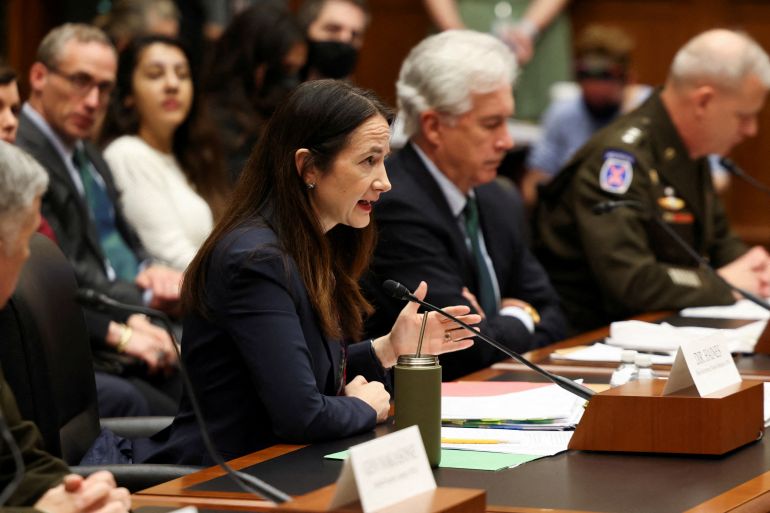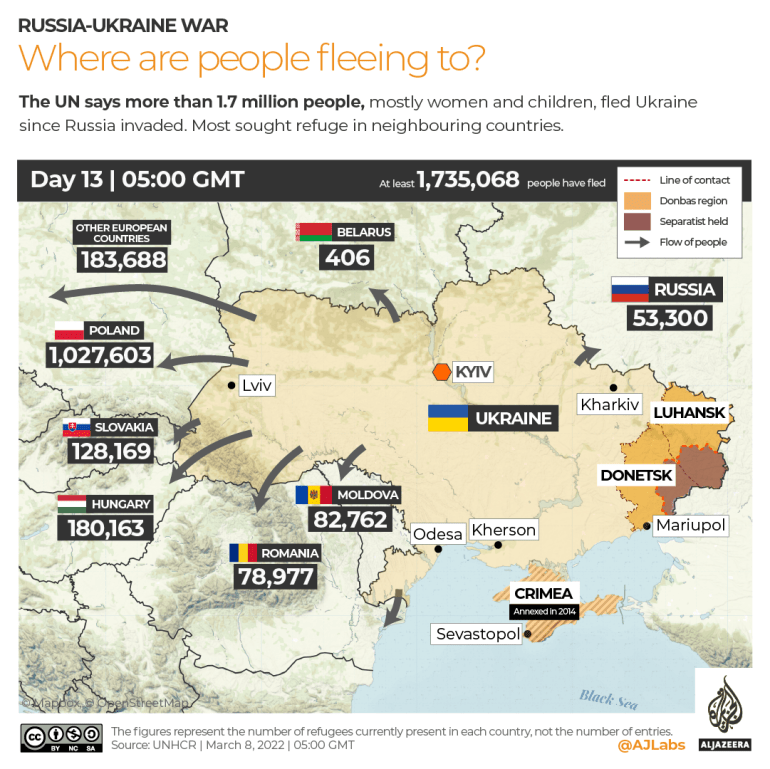Russia facing setbacks in Ukraine, US intelligence officials say
CIA director says Russian President Putin’s assumptions about Ukraine before the invasion turned out to be ‘profoundly flawed’.

Russian forces are facing setbacks in their invasion of Ukraine, US intelligence officials have said, stressing that President Vladimir Putin’s plan to install a puppet government in Kyiv is unlikely to succeed amid fierce Ukrainian resistance.
During a congressional hearing on Tuesday, the heads of United States intelligence agencies told lawmakers that despite the issues with the invasion, Putin is likely to escalate the conflict in the coming weeks.
Keep reading
list of 3 items‘We are refugees’: Russians flee rising authoritarianism
Shell to stop buying Russian crude oil, gas over Ukraine invasion
“We assess Moscow underestimated the strength of Ukraine’s resistance and the degree of internal military challenges we are observing, which include an ill-constructed plan, morale issues and considerable logistical issues,” said Director of National Intelligence Avril Haines.
Haines added that it remains unclear whether Russia will pursue a maximalist plan of capturing all of Ukraine, and that if it does, it will be “especially challenging” for Moscow to hold and control the country.
She said Putin “perceives this is a war he cannot afford to lose” but his definition of victory may shift given the significant cost Russia is incurring.
The Russian president did not anticipate the effects of Western sanctions or the private sector’s pullback from Russia, Haines told legislators.
“Nevertheless, our analysts assess that Putin is unlikely to be deterred by such setbacks and instead may escalate, essentially doubling down to achieve Ukrainian disarmament and neutrality to prevent it from further integrating with the US and NATO,” she said.
CIA Director William J Burns echoed Haines’s comments, saying that Putin’s assumptions about Ukraine turned out to be “profoundly flawed”, with Ukrainians developing a strong sense of “nationhood and sovereignty” after Russia annexed Crimea in 2014.
“I fail to see – and our analysts fail to see – how he could sustain a puppet regime or a pro-Russian leadership that he tries to install in the face of what is a massive opposition from Ukrainian people,” Burns said.
Russia launched an all-out invasion of Ukraine on February 24 after a months-long standoff that saw Moscow amass troops near the Ukrainian borders as it demanded an end to NATO expansion into former Soviet republics.
The war has forced two million people to flee the country and devastated areas across Ukraine with major cities, including the capital Kyiv, facing Russian bombardment and siege. The US and its allies were quick to impose sweeping sanctions on the Russian economy as well as financial penalties on Putin and elites in his inner circle.
On Tuesday, US President Joe Biden announced a ban on Russian oil and gas imports. Unlike many countries in Europe, the US – a major oil producer – does not rely on Russian fuel for its energy needs.
“We’re banning all imports of Russian oil and gas and energy. That means Russian oil will no longer be acceptable at US ports and the American people will deal another powerful blow to Putin’s war machine,” Biden told reporters at the White House on Tuesday.

Meanwhile, US intelligence officials testifying on Capitol Hill accused Russian forces of showing “reckless disregard” for civilians, warning that attacks on Ukrainian cities may intensify as the situation escalates. The CIA’s Burns predicted an “ugly next few weeks” of fighting.
“The one thing I’m absolutely convinced of, and I think our analysts across the intelligence committee are absolutely convinced of, is the Ukrainians are going to continue to resist fiercely and effectively,” Burns told lawmakers.
Scott Berrier, director of the US Defense Intelligence Agency, estimated that Russia has lost “somewhere between 2,000 and 4,000” troops since the invasion began, an assessment he said was made “with low confidence”.
“That number comes from some intelligence sources but also open source,” Berrier said.